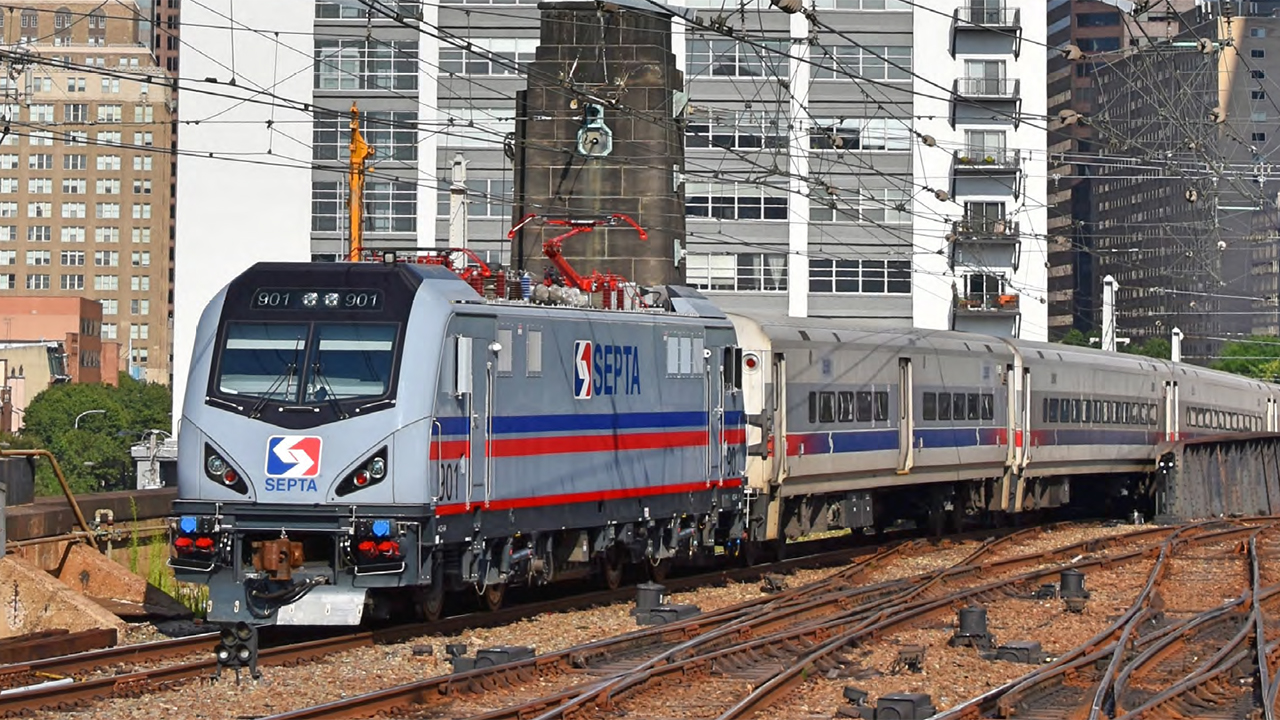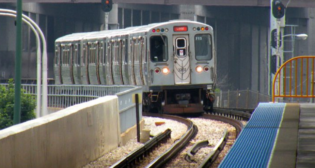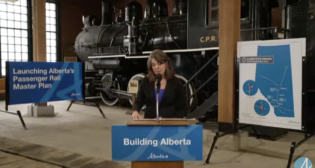
Report: BLET, SMART-TD Authorize Strike on SEPTA (UPDATED 11/21)
Written by Carolina Worrell, Senior Editor
The national presidents of the Brotherhood of Locomotive Engineers and Trainmen (BLET) and the International Association of Sheet Metal, Air, Rail and Transportation Workers, Transportation Division (SMART-TD), which represents the conductors, in October authorized strike votes on the Southeastern Philadelphia Transportation Authority (SEPTA) “after months of mediated talks [with the agency] failed to produce progress toward agreements,” according to a report by The Philadelphia Inquirer. By vote, members of both unions have now granted their leaders authority to call a strike; however, this does not mean a strike is imminent.
According to the October newspaper report, engineers and conductors “have not received raises in about four years, and their hourly wages already are the lowest among commuter rail systems nationally,” union officials say.
“Engineers and conductors have been leaving to take better-paying jobs with other rail systems in the region—BLET National President Eddie Hall said there are 159 locomotive engineers on staff, compared to an authorized strength of 230,” according to the report.
“We continue to try to get SEPTA to negotiate, but they’re not really working with us at all,” Hall said in an interview. “I expect our membership will be behind this.”
According to the report, the unions said they would jointly announce the results of the balloting on Nov. 20, in part because “BLET’s bylaws require voting to be conducted by mail.”
According to The Philadelphia Inquirer report, the announcement of the strike votes came as negotiators for SEPTA and its largest bargaining unit, Transport Workers (TWU) Local 234, “hunkered down at a Center City hotel for marathon talks ahead of the Oct. 31 expiration of the two-year contract covering bus, trolley, and transit train operators, mechanics, and cashiers.”
“I think the momentum will shift since we’re here,” said TWU Local 234 President Brian Pollitt. He said the union’s negotiators intend to “lock ourselves” there for the week, meeting 24 hours a day if necessary, according to the report.
According to The Philadelphia Inquirer report, Don Hill, the General Chairman of Division 71 of the BLET, which represents Regional Rail engineers, was there lending support to Pollitt and the TWU as the engineers and conductors were announcing their strike votes.
“We started collaborating a lot more [with the other SEPTA unions] over the last 10 years,” Hill said in an interview. “We all realized it’s better to work together than be picked apart.”
“We have proposed several packages to settle this round of bargaining, and SEPTA has not moved one inch from their initial position,” said SMART-TD General Chairperson Ray Boyer in a release. “Even through mediation, SEPTA refuses to bargain by completely ignoring inflation and labor’s part in keeping the service fluid during the pandemic. CEO Leslie Richards was provided with a four-year contract in May 2023 that included a $75,000 wage increase, bringing her total compensation to $425,000. SEPTA’s board approved her raise after a comprehensive review of compensation for leaders in comparable transit systems. In other words, the board applied a prevailing-wage concept to determine her compensation. SEPTA is completely ignoring the same prevailing-wage concept when it comes to labor, which is hypocrisy. It’s a clear picture of management’s value of its labor force, and SMART-TD is not going to tolerate our voices being ignored any longer. A strike vote must be presented to the members to prepare for further action.”
“Our General Chairperson for the SEPTA property, Ray Boyer, served Section 6 Notices on SEPTA well over a year ago,” said SMART-TD President Jeremy Ferguson in the release. “SEPTA management knows full well that SMART-TD’s members are the backbone of the greater Philadelphia area. Our members operate heavy rail, buses, light rail, and trolleys that keep this city moving. They do so in all kinds of weather and through the pandemic, all while assault rates on transit workers are going through the roof. At minimum, SEPTA management should show labor the respect it deserves and negotiate in good faith. Instead, SEPTA refuses to adjust its initial proposals or acknowledge the various packages proposed by SMART-TD. With that, I have authorized a strike vote for our SEPTA passenger service members.”
According to The Philadelphia Inquirer report, “contracts have ended for both BLET and SMART-TD, but the federal Railway Labor Act requires railroad employees to keep working on an automatic contract extension and begin talks with a mediator on a new one. Binding arbitration and a cooling-off period follow.”
If the sides still can’t agree, The Philadelphia Inquirer reported, “the dispute can ultimately be decided by an emergency board appointed by President Joe Biden—as happened with a dispute between freight railroads and unions last year.”
According to The Philadelphia Inquirer report, both unions say that SEPTA has “benefited by relying on Presidential Emergency Boards (PEBs) and convincing them not to require the agency to grant wage increases during the bargaining period and to eliminate retroactive wages.”
As a result, passenger rail wages at SEPTA “have deteriorated,” said SMART-TD Vice President Jamie Modesitt.
“This is significant because it has permitted SEPTA to avoid labor wage increases for almost two years during certain bargaining cycles,” Modesitt said in a release. “A 0% wage increase, logically, does not compound, and that has caused SEPTA wages over the past years to drop below the prevailing wage for the passenger rail industry. It is obvious to me that SEPTA hopes to repeat its attack on wages because they have made it clear to us that the PEB is their goal.”
Update: BLET, SMART-TD
BLET on Nov. 20 reported that Vice President James P. Louis spoke at the Nov. 16 SEPTA Board meeting, explaining the issues leading to the vote in favor of striking: “The engineers and trainman on SEPTA are the lowest paid in the industry. With the new contract on commuter lines in the Northeast, a newly promoted engineer on SEPTA is paid approximately 58% per hour less than his or her counterparts. It takes engineers 15 years, three to five times longer than any other railroad in the country to achieve the full rate on SEPTA which is still approximately 20% lower than other carriers in the Northeast.” SEPTA’s locomotive engineers have not had a raise since 2019, according to the union.
Louis, who assists engineers at Amtrak and all commuter railroads in the region negotiate agreements, also told the Board that “[i]tems like parental leave, pension plans that other commuter agencies and your bus drivers receive is not offered to the SEPTA rail employees.”
According to Don Hil, instead of the necessary 230 locomotive engineers required to maintain SEPTA’s schedule of regional rail trains, the agency is now down to a roster of 177, reported BLET, which noted that the number of locomotive engineers available to run SEPTA’s trains went as low as 159 in September.
BLET reported that this strike authorization vote “is a step necessary under the union’s bylaws to set a strike date and withdraw the members from service.” The strike authorization vote “does not mean a strike will immediately occur.”
“We will use every lawful tool to reach a contract settlement,” BLET National President Eddie Hall said. “I’ve said it before and I will say it again, going without a new agreement during a period of high inflation is not acceptable. The number of years required for a SEPTA engineer to reach the top of the pay scale is too steep. Meanwhile, the number of engineers employed by SEPTA is far too few to meet the needs of passengers. This is no way to run a commuter railroad.”
SMART-TD members of Local 61 (GCA-STA) in Philadelphia have voted to authorize a strike, which the union said comes after 19 months of “contentious negotiations and mediation led by the National Mediation Board with the carrier.”
“SEPTA has implemented a tactic called ‘pattern bargaining’—blending aspects of the railroad and bus industries,” General Chairperson Ray Boyer said. “Unfortunately, this strategy has disproportionately affected conductors, leaving us significantly behind our industry peers in terms of compensation.”
“We have been clear with SEPTA from Day 1 that our men and women are the lowest-paid workforce in the commuter industry and that this negotiation was not going to be status quo,” SMART-TD President Ferguson said. “Our members spoke loud and clear in their vote. Everyone is scheduled to come back to negotiations late next month, and SEPTA would be wise to recognize the leverage these men and women of Local 61 have authorized. We will not settle for anything less than the respect our members have earned.”
“Ultimately, correcting the wage disparity at SEPTA, by investing in labor, will increase employee morale, establish greater retention of good talent, better recruitment opportunities, and reward the commitment of the hard-working SEPTA men and women who serve the public every day of the week,” SMART-TD Vice President Jamie Modesitt said.
The union represents 481 members on SEPTA properties.
Railway Age Executive Editor Marybeth Luczak contributed to this report.



